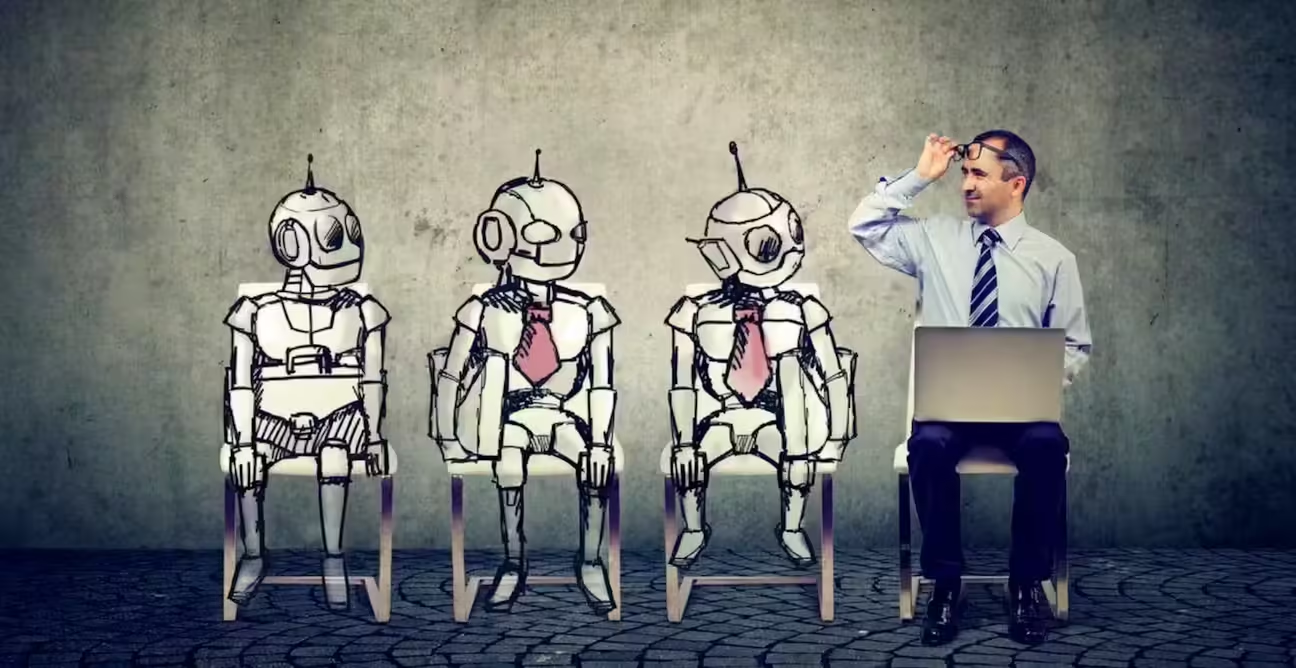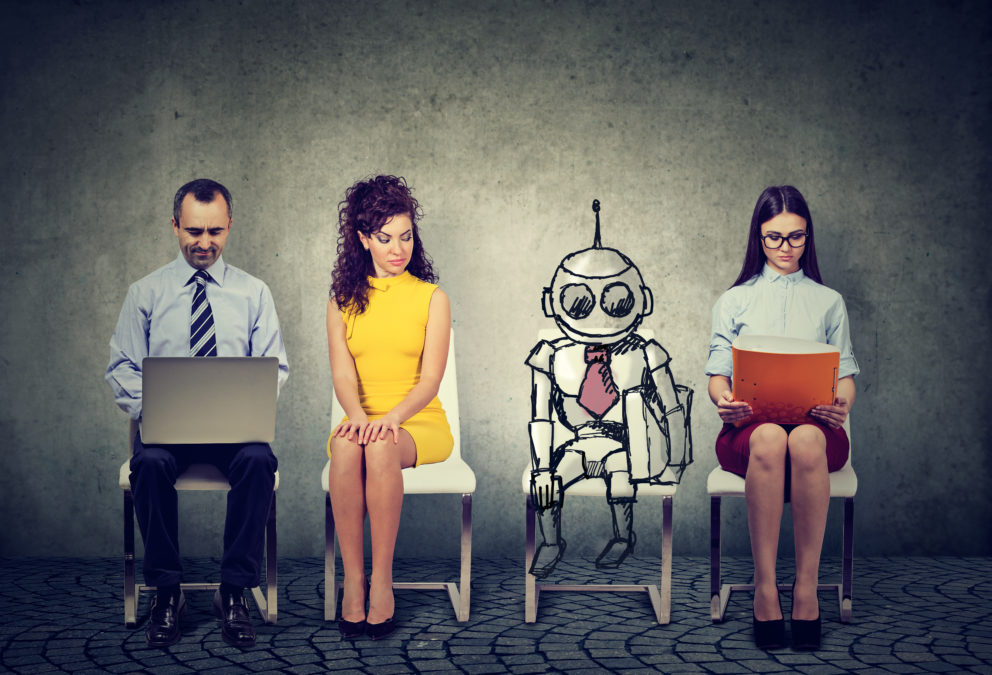AI Can’t Replace Every Job: These Three Professions Could Endure the Age of Automation

AI Can’t Replace Every Job: These Three Professions Could Endure the Age of Automation
In the age of rapid technological advancement, especially with AI and automation making waves in industries across the globe, there’s an increasing sense of uncertainty about the future of work. The rise of robots, machine learning, and artificial intelligence has led many to predict that countless jobs will be replaced by machines, leaving millions of workers without a place in the workforce. However, while AI is undeniably transforming many industries, there are still jobs that require human touch, empathy, and judgment — qualities that robots and algorithms simply cannot replicate.
In this post, we’ll explore three professions that seem poised to endure, even in the age of automation. These roles highlight the unique human skills and creativity that AI cannot replace, at least not in the foreseeable future.
1. Healthcare Professionals: Doctors, Nurses, and Therapists
Why They’re Safe from Automation:
Healthcare professionals, from doctors to nurses and therapists, perform roles that require high levels of emotional intelligence, empathy, and critical thinking. While AI can assist in diagnostics, provide virtual consultations, and even help in research, it cannot replace the human connection that is often crucial for patient care.
In fields like nursing, where patients require a deep sense of empathy and hands-on care, AI lacks the emotional sensitivity to make nuanced decisions in complex human scenarios. Similarly, therapists, both physical and mental health practitioners, rely heavily on emotional awareness and interpersonal relationships to connect with patients and provide effective treatment plans.
AI’s role in healthcare will undoubtedly continue to grow, but its function will likely be more about augmentation than replacement. AI can assist with data analysis, help with administrative tasks, and offer medical insights, but the human touch remains irreplaceable, particularly when dealing with the emotional and psychological needs of patients.
Examples of AI’s role in healthcare:
- Predicting patient outcomes using data.
- Assisting in surgery with robotic systems.
- Offering personalized treatment recommendations.
However, human intuition and the ability to deal with ethical dilemmas, complex patient histories, and unique emotional needs cannot be easily automated.
2. Creative Professions: Artists, Writers, and Designers

Why They’re Safe from Automation:
Creativity is an inherently human trait that cannot be entirely replicated by AI. While AI has made strides in generating art, music, and written content, the true spark of creativity comes from the experiences, emotions, and perspectives of humans. Artists, writers, and designers tap into their unique cultural, emotional, and personal contexts to create work that resonates with others — something AI still struggles to achieve.
While AI-generated art can mimic styles and produce aesthetically pleasing results, it cannot create original ideas or explore deeply personal, meaningful narratives in the same way a human can. Similarly, writers who craft novels, articles, and scripts bring their personal experiences, imagination, and emotional understanding into their work. AI can assist in brainstorming ideas, editing, or even generating drafts, but it is still the human writer who breathes life into a piece with their distinct voice.
The world will continue to crave human-created art, literature, and design because these creations are expressions of our individuality, our struggles, and our cultures. While AI can be a useful tool in the creative process, it is unlikely to ever fully replace the role of a human creator.
Examples of AI in creative fields:
- AI-generated music or artwork.
- Tools for assisting in graphic design or video editing.
- Chatbots and content-generation tools for assisting writers.
AI can assist with automation in repetitive tasks like layout design, copy editing, and generating prompts. However, it still lacks the ability to inject life and nuance into creative works.
3. Skilled Trades: Electricians, Plumbers, and Carpenters
Why They’re Safe from Automation:
Skilled trades like plumbing, carpentry, and electrical work require hands-on problem-solving and expertise that AI and robots struggle to replicate. These professions often involve working in unpredictable environments, with tasks that can range from routine maintenance to unique, one-off repairs that require improvisation and judgment. Robots may excel at performing repetitive or standardized tasks in controlled environments, but they are far less suited for the dynamic, often unpredictable nature of skilled trades.
Electricians, for instance, don’t just install and fix wiring — they also need to troubleshoot complex systems, often in homes or buildings with unique layouts. Similarly, plumbers must work in tight, cramped spaces, navigating complex piping systems that can vary greatly from job to job. Carpenters craft custom pieces, often solving unexpected challenges on the fly. These tasks require both skill and creativity, and AI simply doesn’t have the dexterity or problem-solving ability to handle them.
Though automation may play a role in assisting skilled trades (for example, robots that help with repetitive tasks like drilling or cutting), the core responsibility of a skilled tradesperson — diagnosing problems and adapting to new, ever-changing situations — is one that is far beyond the reach of current AI capabilities.

Examples of AI’s role in skilled trades:
- AI-driven diagnostic tools for identifying issues in electrical systems.
- Robotics assisting with basic construction tasks or welding.
- AI-enhanced software for project management and design.
While AI may help these trades with tools and predictive maintenance, it will not replace the human expertise required to navigate the complexities of real-world work environments.
Conclusion: The Enduring Value of Human Skills
While automation and AI will continue to evolve and disrupt many industries, there are certain professions where human ingenuity, emotional intelligence, and creativity will remain essential. Healthcare professionals, creative artists, and skilled tradespeople all rely on abilities that AI currently cannot replicate in full.
In the future, rather than replacing jobs entirely, AI will likely serve as a complement, enhancing human work and allowing people in these professions to perform their jobs more efficiently. Rather than fearing the rise of AI, we should embrace it as a tool to augment and support the uniquely human qualities that these professions embody.
As we move forward into an increasingly automated world, jobs that require deep human understanding, creativity, and hands-on expertise are likely to continue to thrive. While we may never return to a world entirely devoid of technological advancements, certain human skills will always hold enduring value in the workforce.









